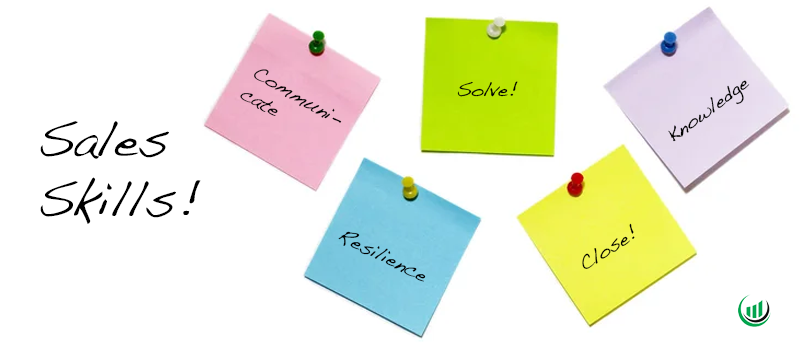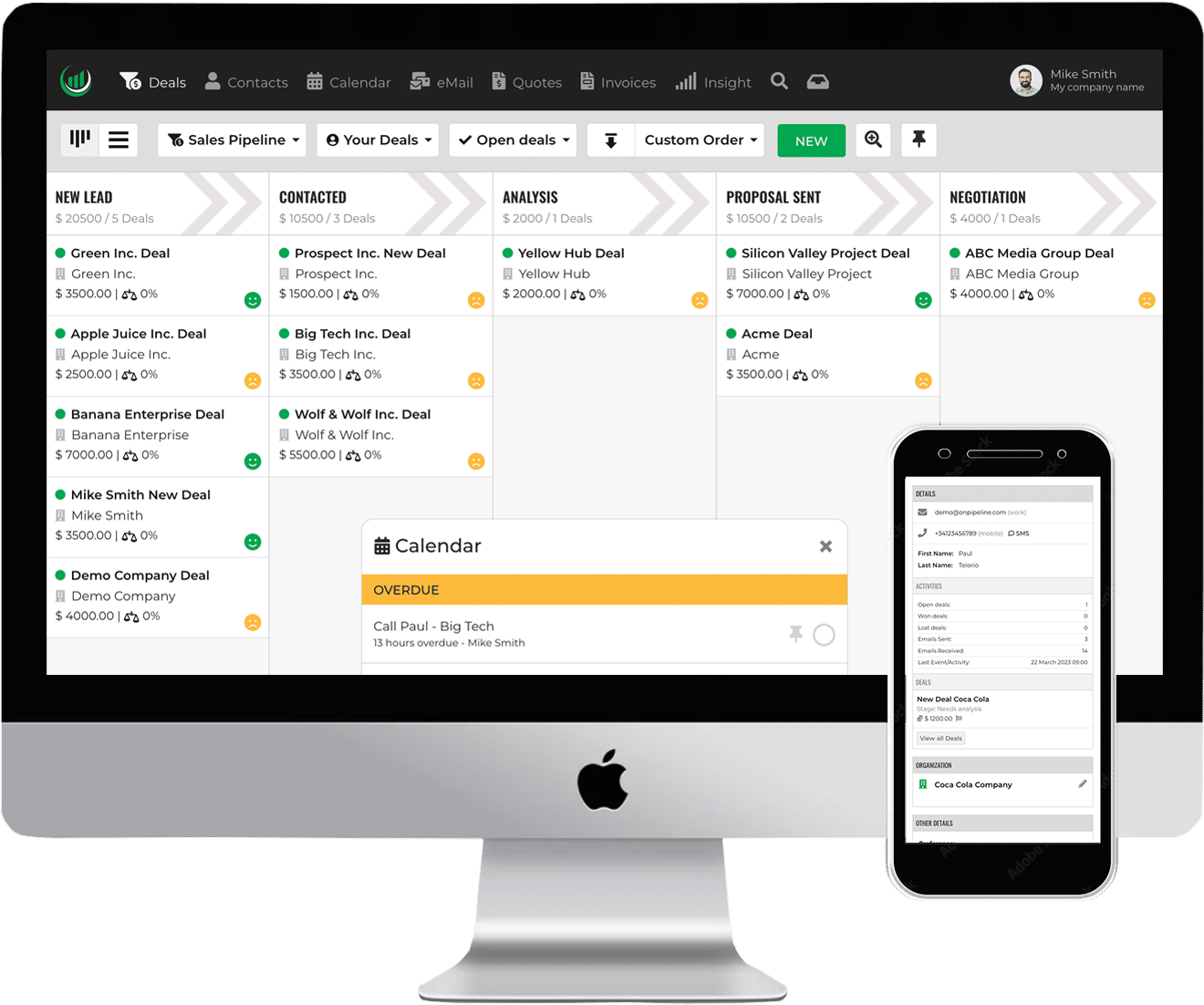Communication
One of the most important sales skills is the ability to communicate effectively. This means being able to clearly explain the benefits of your product or service, listen to your customer’s needs, and respond to their questions or concerns in a way that builds trust.
Clarity
Clear communication is the foundation of successful sales interactions. It involves expressing yourself in a straightforward manner, using language that your audience can easily understand. Avoid technical terms that might confuse your customers. Instead, focus on delivering your message in a simple and concise way.
Active Listening
Effective communication is not just about speaking; it’s also about listening. Active listening means fully engaging with what the other person is saying, without interrupting or formulating your response before they finish speaking. This shows respect for your customer and allows you to better understand their needs and concerns.
Empathy
Empathy is the ability to understand and share the feelings of another person and it is a fundamental aspect of the Consultative Selling Method. In sales, empathy is essential for building rapport and trust with your customers. Put yourself in their shoes, acknowledge their emotions, and respond with compassion and understanding. This creates a connection and makes your customers feel valued and heard.
Nonverbal Communication
Communication is not just about words; it also involves body language, facial expressions, and tone of voice. Pay attention to your nonverbal cues and make sure they align with your verbal message. Maintain eye contact, smile genuinely, and use open and welcoming gestures to convey warmth and sincerity.
Adaptability
Effective communication requires being able to adapt your style to suit the preferences and communication styles of your customers. Some people prefer direct and to-the-point communication, while others appreciate a more conversational approach. Pay attention to cues from your customers and adjust your communication style accordingly to build rapport and make them feel comfortable.
Feedback
Communication is a two-way street, and soliciting feedback is crucial for ensuring that your message is being received as intended. Encourage your customers to ask questions, share their thoughts, and provide feedback throughout the sales process. This shows that you value their input and are committed to meeting their needs.
Confidence
Confidence is key to effective communication. Believe in yourself and in the value of what you’re selling, and let that confidence shine through in your words and actions. Speak with conviction, maintain a positive attitude, and exude enthusiasm for your product or service. This instills confidence in your customers and makes them more receptive to your message.
Problem-Solving
Sales is all about solving problems for your customers. Whether it’s finding the right solution to meet their needs or addressing sales objections they may have, being able to think critically and come up with creative solutions is key to closing more deals.
Analytical Thinking
Problem-solving often begins with analyzing the situation at hand. This involves breaking down complex problems into smaller, more manageable components, and examining each part to gain a deeper understanding. By taking a systematic approach to problem-solving, you can identify the root causes of issues and develop effective solutions.
Creativity
Effective problem-solving requires thinking outside the box and exploring innovative solutions. Creativity involves generating new ideas, considering alternative perspectives, and approaching problems from different angles. By embracing creativity, you can uncover unique solutions that may not be immediately obvious and find ways to overcome obstacles more effectively.
Resourcefulness
In many cases, solving problems requires making the most of limited resources. Resourcefulness involves being able to adapt and find creative ways to achieve your goals with the resources available to you. This may involve thinking creatively about how to leverage existing tools, seeking out new opportunities, or collaborating with others to find solutions.
Decision-Making
Making informed decisions is a key aspect of problem-solving. This involves weighing the pros and cons of different options, considering potential risks and rewards, and selecting the best course of action based on available information. Effective decision-making requires clarity of thought, critical thinking skills, and the ability to act decisively when necessary.
Flexibility
Problem-solving is rarely a linear process, and it often requires the ability to adapt and adjust your approach as new information emerges. Being flexible means being open to change, willing to revise your plans as needed, and embracing uncertainty with a positive attitude. By remaining flexible, you can navigate unexpected challenges more effectively and find creative solutions to complex problems.
Persistence
Solving problems can be challenging, and it often requires perseverance in the face of obstacles. Persistence involves staying focused on your goals, even when things don’t go according to plan, and maintaining a positive attitude in the face of adversity. By remaining persistent, you can overcome setbacks, learn from your experiences, and ultimately find solutions to even the most difficult problems.
Collaboration
Sometimes, solving problems requires working together with others. Collaboration involves sharing ideas, pooling resources, and leveraging the strengths of different team members to find solutions collectively. By collaborating with others, you can tap into a wider range of expertise, generate more creative ideas, and ultimately achieve better outcomes.
Product Knowledge
To effectively sell a product or service, you need to have a deep understanding of what you’re selling. Take the time to learn the ins and outs of your product or service, including its features, benefits, and how it compares to competitors. This will help you confidently answer questions and address any concerns that may arise during the sales process.
Understanding Features and Benefits
Product knowledge involves knowing the ins and outs of the products or services you’re selling. This includes understanding their features, specifications, and capabilities. It’s about being able to articulate how these features translate into benefits for the customer.
For example, instead of just listing the technical specifications of a smartphone, you should be able to explain how its advanced camera technology can help customers capture high-quality photos and videos.
Tailoring Solutions
A thorough understanding of your product allows you to tailor your sales pitch to the specific needs and preferences of each customer. By identifying the features and benefits that are most relevant to a particular customer, you can demonstrate how your product meets their unique needs and solves their specific problems. This personalized approach not only increases the likelihood of making a sale but also enhances the customer experience and satisfaction.
Handling Objections
In sales, objections are inevitable. However, having in-depth product knowledge equips you with the tools to address objections confidently and effectively. Whether it’s concerns about price, functionality, or competition, being well-versed in your product allows you to provide accurate information and alleviate any doubts or reservations the customer may have.
Differentiating from Competitors
In today’s competitive market, differentiation is key to standing out from the competition. Product knowledge enables you to highlight the unique features and benefits of your product that set it apart from competitors. By articulating these differences clearly and persuasively, you can position your product as the superior choice and win over customers who may be considering alternatives.
Learning and Adapting
Finally, product knowledge is not static; it requires ongoing learning and adaptation. As products evolve and new features are introduced, it’s essential to stay up-to-date with the latest developments. This commitment to continuous learning not only enhances your sales effectiveness but also demonstrates your dedication to providing the best possible service to your customers.
Resilience
Resilience is a critical skill in sales that enables individuals to bounce back from setbacks, overcome challenges, and maintain a positive attitude in the face of adversity. Here’s a closer look at what resilience entails and why it’s essential for success.
Adaptability
Resilient sales professionals are adaptable and flexible, able to adjust their strategies and approach in response to changing circumstances. They understand that not every sale will go smoothly and are prepared to pivot when necessary to find new opportunities or solutions.
Positive Mindset
Maintaining a positive mindset is key to resilience. Even when faced with rejection or obstacles, resilient salespeople focus on the opportunities for growth and improvement. They view setbacks as temporary setbacks rather than insurmountable failures and remain optimistic about their ability to succeed in the long run.
Emotional Regulation
Resilient sales professionals are adept at managing their emotions and maintaining composure under pressure. They understand that emotional reactions can impact their performance and relationships with clients. By staying calm and composed, even in challenging situations, they can make better decisions and effectively navigate difficult conversations.
Self-Reflection and Learning
Resilience involves a willingness to reflect on past experiences and learn from both successes and failures. Resilient salespeople take the time to evaluate their performance, identify areas for improvement, and apply those lessons to future interactions. This continuous learning mindset enables them to adapt and grow over time.
Seeking Support
Resilient individuals recognize the importance of seeking support from others when needed. Whether it’s seeking advice from mentors, collaborating with colleagues, or reaching out to friends and family for emotional support, they understand that they don’t have to navigate challenges alone. By building a support network, they can gain perspective, receive encouragement, and overcome obstacles more effectively.
Closing Skills
Ultimately, the goal of sales is to close the deal. This requires confidence, persuasion, and the ability to overcome objections. Practice different closing techniques, such as trial closes or assumptive closes, and know when and how to ask for the sale.
Negotiation
Negotiation skills are essential for navigating the final stages of the sales process. Sales professionals must be able to:
- Negotiate terms
- Handle objections
- Address any last-minute concerns
Emotional Intelligence
Understanding and managing emotions is key to closing sales effectively. Sales professionals must be able to empathize with customers, build rapport, and handle emotional reactions – both their own and those of the customer – in a way that fosters trust and confidence.
Time Management
Closing sales requires effective time management skills to prioritize tasks, follow up with leads, and meet deadlines. Sales professionals must be organized and disciplined in managing their time to maximize productivity and efficiency.
Adaptability
The sales landscape is constantly changing, and successful sales professionals must be adaptable and flexible in response to evolving customer needs, market trends, and competitive pressures. They should be willing to try new approaches, learn from experience, and adapt their strategies accordingly.
Closing Techniques
Familiarity with a variety of sales techniques, such as trial closes, assumptive closes, and urgency closes, gives sales professionals the tools they need to effectively seal the deal. They should be able to select the most appropriate closing technique based on the customer’s buying signals and the context of the sales situation.
Our Takeaway
With these essential sales skills, you can increase your effectiveness as a salesperson and close more deals. Remember, sales is not just about selling a product or service – it’s about building relationships, solving problems, and adding value to your customers’ lives. With the right skills and mindset, you can achieve success in sales and reach your goals



